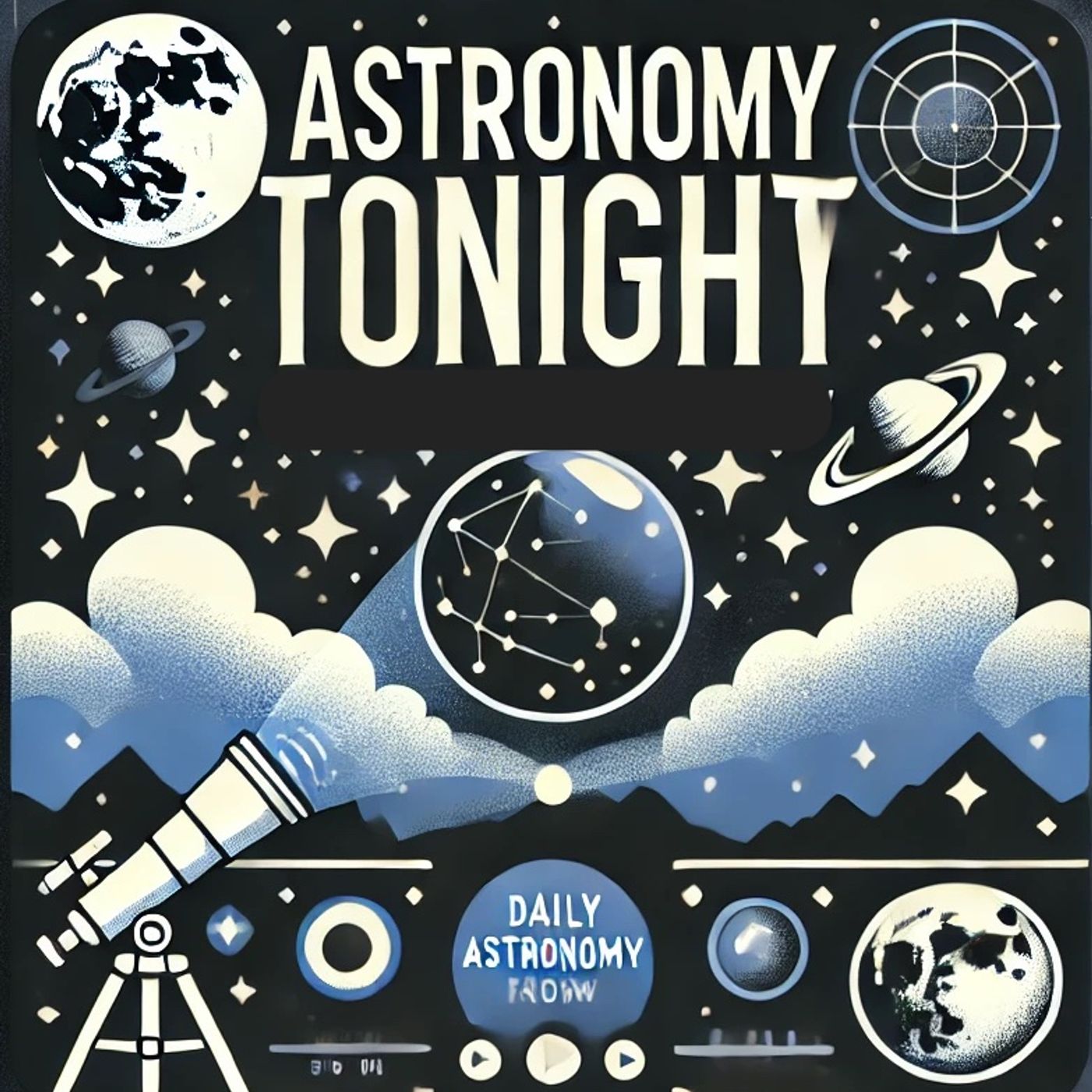Episode Details
Back to Episodes
The Wow! Signal: Cosmic Whisper from Beyond
Published 6 months, 1 week ago
Description
This is your Astronomy Tonight podcast.
On this day, August 15th, in the year 1977, a truly extraordinary event occurred that would forever change our understanding of the cosmos and our place within it. At precisely 10:16 p.m. Eastern Time, the Big Ear radio telescope at Ohio State University detected a powerful narrowband radio signal that lasted for a full 72 seconds. This signal, which came to be known as the "Wow!" signal, was so strong and unusual that astronomer Jerry Ehman, who was reviewing the printout data, circled the signal on the computer printout and wrote "Wow!" next to it.
Now, imagine yourself as Jerry Ehman on that fateful night. You're sitting in a dimly lit room, surrounded by the gentle hum of computers, your eyes scanning row after row of seemingly mundane data. Suddenly, your heart skips a beat as you spot something utterly unexpected - a signal so powerful and distinct that it stands out like a cosmic exclamation point among the stars.
The signal, which appeared to come from the direction of the constellation Sagittarius, was 30 times stronger than the background noise of deep space. It had characteristics that many scientists believed were consistent with an artificial, extraterrestrial origin. The frequency of the signal, 1420 MHz, was particularly intriguing as it corresponds to the emission frequency of hydrogen - the most abundant element in the universe and a frequency that many scientists believe would be a logical choice for interstellar communication.
Despite numerous attempts, the Wow! signal has never been detected again, adding to its mystique and leaving us with one of the most tantalizing mysteries in the search for extraterrestrial intelligence. Was it a message from an advanced alien civilization? A previously unknown natural phenomenon? Or perhaps a secret military transmission that accidentally pointed towards the sky? The truth remains elusive, but the Wow! signal continues to captivate our imaginations and drive our quest to understand our cosmic neighborhood.
As we reflect on this enigmatic event, we're reminded of the vast, unexplored frontiers that still exist in our universe, and the endless possibilities that await us in the field of astronomy.
If you enjoyed this cosmic journey, please don't forget to subscribe to the Astronomy Tonight podcast. And if you're hungry for more intriguing content across various topics, check out Quiet Please dot AI. Thank you for listening to another Quiet Please Production. Until next time, keep your eyes on the skies and your mind open to the wonders of the universe!
This content was created in partnership and with the help of Artificial Intelligence AI
On this day, August 15th, in the year 1977, a truly extraordinary event occurred that would forever change our understanding of the cosmos and our place within it. At precisely 10:16 p.m. Eastern Time, the Big Ear radio telescope at Ohio State University detected a powerful narrowband radio signal that lasted for a full 72 seconds. This signal, which came to be known as the "Wow!" signal, was so strong and unusual that astronomer Jerry Ehman, who was reviewing the printout data, circled the signal on the computer printout and wrote "Wow!" next to it.
Now, imagine yourself as Jerry Ehman on that fateful night. You're sitting in a dimly lit room, surrounded by the gentle hum of computers, your eyes scanning row after row of seemingly mundane data. Suddenly, your heart skips a beat as you spot something utterly unexpected - a signal so powerful and distinct that it stands out like a cosmic exclamation point among the stars.
The signal, which appeared to come from the direction of the constellation Sagittarius, was 30 times stronger than the background noise of deep space. It had characteristics that many scientists believed were consistent with an artificial, extraterrestrial origin. The frequency of the signal, 1420 MHz, was particularly intriguing as it corresponds to the emission frequency of hydrogen - the most abundant element in the universe and a frequency that many scientists believe would be a logical choice for interstellar communication.
Despite numerous attempts, the Wow! signal has never been detected again, adding to its mystique and leaving us with one of the most tantalizing mysteries in the search for extraterrestrial intelligence. Was it a message from an advanced alien civilization? A previously unknown natural phenomenon? Or perhaps a secret military transmission that accidentally pointed towards the sky? The truth remains elusive, but the Wow! signal continues to captivate our imaginations and drive our quest to understand our cosmic neighborhood.
As we reflect on this enigmatic event, we're reminded of the vast, unexplored frontiers that still exist in our universe, and the endless possibilities that await us in the field of astronomy.
If you enjoyed this cosmic journey, please don't forget to subscribe to the Astronomy Tonight podcast. And if you're hungry for more intriguing content across various topics, check out Quiet Please dot AI. Thank you for listening to another Quiet Please Production. Until next time, keep your eyes on the skies and your mind open to the wonders of the universe!
This content was created in partnership and with the help of Artificial Intelligence AI